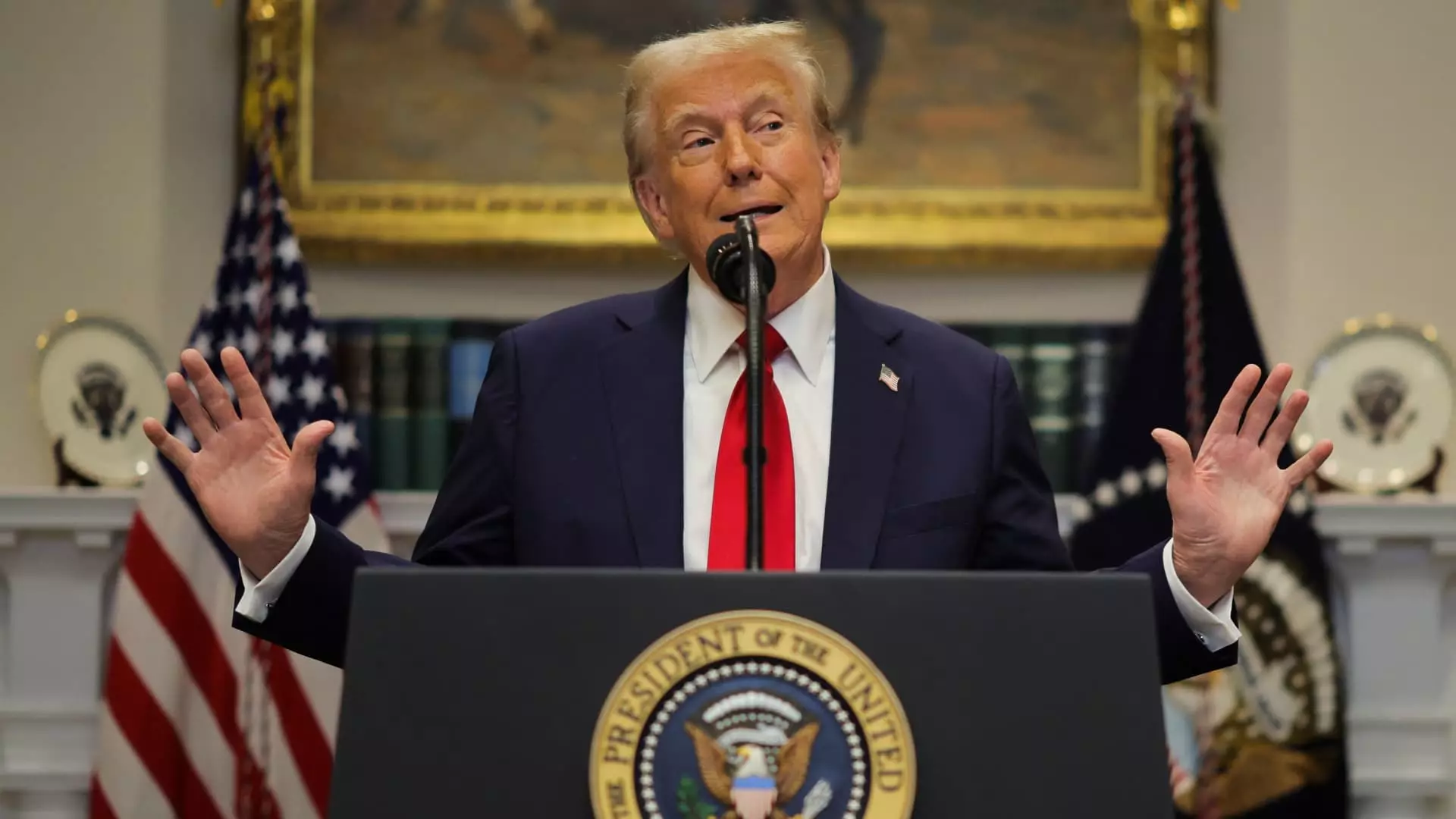The discussion surrounding tariffs has been a contentious element of international trade policy, particularly during President Donald Trump’s administration. With the announcement of a potential 10% tariff on Chinese goods due to the ongoing fentanyl crisis, the implications extend beyond mere economic adjustments; they delve into the fabric of domestic and global relationships. Trump’s remarks, made at the White House, suggest an intensification of the trade war mindset that has characterized much of his presidency and raises questions about the efficacy and repercussions of such unilateral actions.
In his statement, Trump linked the proposed tariffs directly to the issue of fentanyl, a synthetic opioid responsible for countless overdose deaths in the United States. By alleging that China is behind the supply of this drug, he attempted to position the tariffs as not merely an economic tool but as a necessary measure for public health. This approach underscores a broader trend in which trade policy is increasingly interwoven with issues of national security and public welfare, though skeptics might argue that this is merely a strategic narrative to justify economic sanctions.
The dialogue between the U.S. and China has seen its fair share of turbulence, particularly with tariffs shaping the landscape of bilateral relations. Trump’s recent conversation with Chinese President Xi Jinping ostensibly revolved around cooperation on drug trafficking, but it also reveals the complicated nature of trade discussions. While Xi emphasized mutual benefits and cooperation, the reality remains that tariffs and trade disputes create significant strain. This duality is critical to understanding the broader implications of Trump’s policies, as they foster both collaboration and conflict.
The Peterson Institute for International Economics, in a recent analysis, predicted substantial economic fallout should Trump’s proposed tariffs materialize. A potential drop of $55 billion in U.S. GDP over the next four years underscores the gravity of such a decision. This aligns with previous patterns; past tariff increases resulted in reciprocal measures from China, further exacerbating economic challenges for both nations. A cycle of retaliation could replicate the historical costs of trade wars, raising questions about whether such actions are ultimately beneficial or detrimental for the American economy.
In tandem with discussions about China, Trump’s administration is also contemplating a 25% tariff on goods from Mexico and Canada. This move appears to be motivated by issues surrounding immigration and border control, presenting a convoluted rationale for imposing trade restrictions. Critics might argue that such tariffs create a hostile trade environment within North America, undermining long-standing agreements like NAFTA. By conflating immigration issues with trade policies, the Trump administration risks alienating key trade partners while potentially inciting retaliatory tariffs.
The potential for ongoing tariffs raises broader global economic concerns, particularly within the context of international trade relationships. Trade wars often produce ripple effects that destabilize various economies, serving as a deterrent to global cooperation. Initiatives aimed at economic globalization could be jeopardized as nations prioritize protectionist policies over collaborative endeavors. Moreover, ongoing tensions may lead to diminished trust among trading nations, further complicating future negotiations and exacerbating conflicts.
As the Trump administration contemplates significant tariff increases, the broader consequences warrant careful examination. Not only do these tariffs carry the potential for immediate economic ramifications, but they also pose existential questions regarding the future of international trade. Focusing on public health issues like the fentanyl crisis may offer a compelling narrative for action, yet it does not address the multifaceted complexities of global economic interdependence. As policymakers navigate these turbulent waters, a reevaluation of the strategies aimed at negotiating trade relations is imperative. Only through careful consideration and balanced approaches can nations hope to foster stable and mutually beneficial economic partnerships.


Leave a Reply